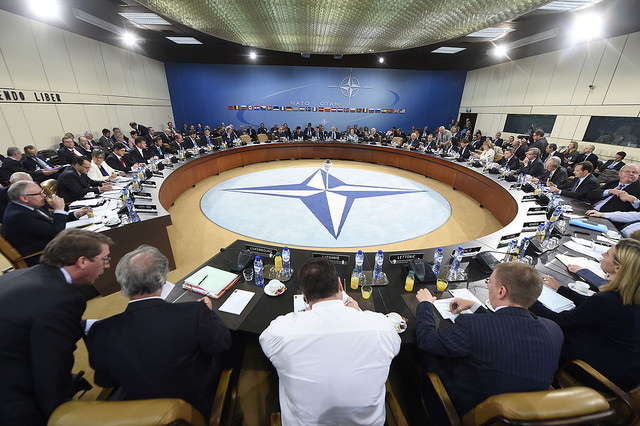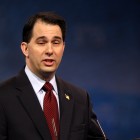
Not Able To Operate: The European Retreat from the Global Stage
Not Able To Operate: The European Retreat from the Global Stage
By Jeffrey Witter, NSN Intern
August 13, 2015
Last week, Prime Minister David Cameron forcefully argued that the UK needs to step up its efforts to combat ISIL and other Islamic terrorist organizations. Coming on the heels of an ISIL attack on a resort beach in Tunisia that killed at least two dozen British tourists, Cameron called for renewed efforts to combat homegrown Islamic extremism, and announced plans to push Parliament to authorize British airstrikes in Syria as well as Iraq. The move is certainly welcome news to the Obama administration, which has been pushing for increased involvement by coalition partners in the Middle East to combat ISIL. However, the amount of political capital that Cameron will expend in pushing for a fairly minor contribution to the international effort to combat ISIL demonstrates that many European powers are unwilling, and increasingly unable, to combat substantial threats to international security.
According to the most recent data from NATO (2013), only four countries out of the 28 member states met the defense spending target of 2% of GDP: the US, the UK, Estonia, and Greece. As recently as the early 1990’s, European NATO countries were spending an average of 2.5% of GDP on defense, but since the end of the Cold War, most member states have cut their defense budgets significantly. The UK and France, the traditional European partners of the US on matters of international security, are increasingly unable to project global force. In 2013, France released its “White Paper,” which sought to articulate France’s strategic vision and layout the defense budget. In the foreword, President Hollande rather prematurely stated, “the European continent has ceased to be the epicentre for global strategic confrontation.” The White Paper dramatically cut the size of the French Army and French Air Force, and abandoned plans for a second aircraft carrier to complement the aging Charles de Gaulle. Similarly, the UK will barely spend 2% of GDP on defense next year, after personal lobbying from President Obama. The UK will also cut its army to record-low levels, and despite the construction of two new aircraft carriers, seems resigned to abandoning its ability to project global force. Germany, the main economic powerhouse of Europe, barely spends 1% of its GDP on defense , and the military equipment it possesses is in a woeful state of disrepair, with many of its tanks and planes not in operational condition.
It’s not only the capacity to project military force that has waned for European NATO states. Despite the dangers posed on the European continent by a bellicose Russia, and the danger of terrorist attacks perpetrated by ISIL on European soil, European NATO members are increasingly reluctant to participate in international military campaigns. The UK has contributed about 1 airstrike a day to the anti-ISIL campaign in Iraq, less than 6% of the coalition airstrikes in Iraq. It is estimated that Australia has a larger presence than the UK in Iraq. France, despite a slightly more robust role in Iraq and ongoing counterterrorism efforts in Mali, seems reluctant to take a more active role in the global fight against terrorism. Both nations have denounced President Putin and warned him against European aggression, but have left the majority of the NATO-led beefing up of defenses in Eastern Europe to the United States. Some of this reluctance can be attributed to the Afghanistan and Libya interventions, which failed to achieve stability or peace despite billions of dollars and sustained coalition efforts.
The disengagement from the global stage is not unique to just France or the UK. In a recent poll, less than half of the publics in all major European NATO states would support military action to defend a NATO member state from an attack under Article V, even though NATO states are obligated by treaty to do so. At least half of all Germans, Italians, and the French say that their country should not use military force to defend a NATO state from an attack by Russia, though the threat of an attack from a foreign actor on European soil was the main impetus for the creation of NATO in the first place. Although NATO has frequently met to discuss Russian aggression and how to combat terrorist groups such as ISIL, it is increasingly clear that most NATO countries are unable and unwilling to do much more than issue strongly-worded statements.
It would be historically disingenuous to pretend that NATO has ever existed as anything other than a vehicle for American-led security endeavors. During the Cold War, as today, the United States provided the bulk of the money and manpower. At the height of the Afghanistan War, the only NATO-led military effort to be triggered under Article V, the United States contributed over 70% of the troops in NATO-led ISAF. With the exception of the British, most European soldiers in Afghanistan were responsible for policing relatively calm provinces in the north of the country. In all of NATO’s military interventions, the US has supplied the vast majority of the firepower. Although to date NATO has existed as a primarily US-led organization, the time has come to reexamine its operational structure. The economic and political integration of Europe that has occurred in the past three decades minimizes the risk of another major war between the powers of Western Europe, and it would be foolish to believe that NATO and European disarmament is the only thing preventing a German invasion of France.
The existence of NATO as a paper tiger masking American-led military efforts under the guise of the word “coalition” is unsustainable. In an era that presents an increasingly complex array of international security threats, the existence of a military alliance in which the United States does all the heavy lifting is no longer feasible. The US faces its own set of budgetary constraints on defense spending, and it is unrealistic for the world to expect that the US continues to defend the territorial integrity of rich, developed countries while it simultaneously attempts to tackle a host of security challenges in the Middle East and lead the West’s global strategic “pivot to Asia.”
Part of the reason that European NATO states have been reticent about spending national treasure on defense is that they feel that it is not necessary to spend money on their militaries while the United States exists to combat security threats. If the partial annexation of a European country by a foreign power for the first time since the Second World War isn’t enough to force European nations into taking their territorial defense seriously, the US needs to make it clear that all NATO states need to pull their weight. The growing complexity and breadth of international security challenges requires a multilateral response, and the United States cannot be expected to foot the bill for every security threat in the world. At the very least, the US should begin to encourage a transition of responsibility for Europe’s territorial defense to European NATO countries. There is a place for NATO in the 21st century as an important actor in addressing international security challenges, but only if its operational and funding structures truly reflect a multilateral relationship between the United States and Europe.





